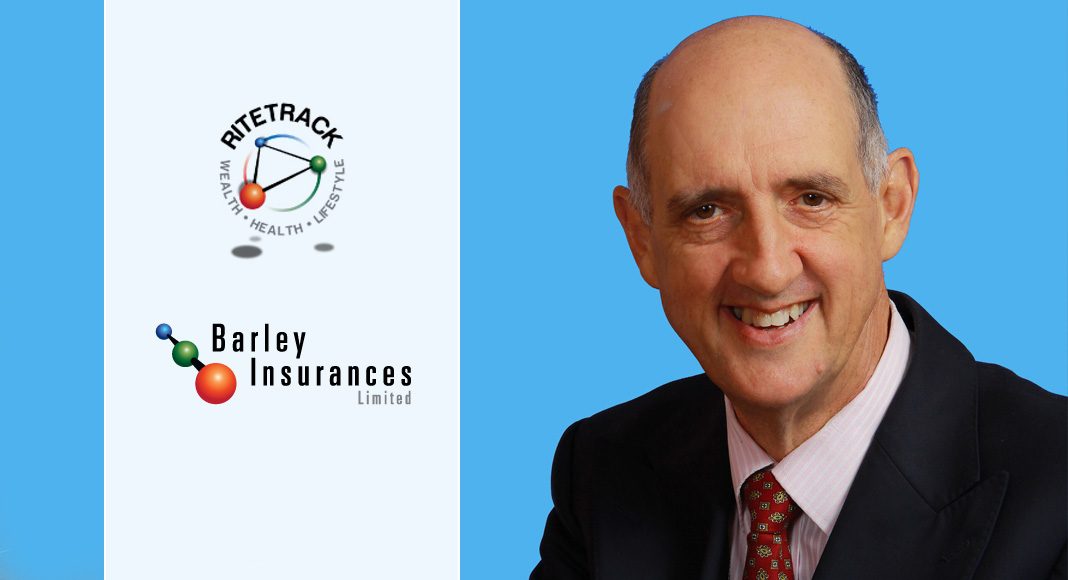John Barley and his wife Suzanne own New Zealand-based insurance broking business Barley Insurance. They also own RiteTrack. By understanding risk they are able to engineer creative solutions to prevent losses and help improve productivity, profitability and resilience for businesses.
John has written extensively on risk management and how health and lifestyle impact on road risk.
In your opinion what is the cause of most collisions on the road?
Fatigue of the driver ‚Äď lack of awareness of the driver‚Äôs immediate environment.
What are the principle ‚Äėrisks‚Äô facing drivers in 2016?
Risks is such a small word yet it covers an expanse of subjects. I believe the biggest risk for drivers is not being able to handle the day to day stressors in their lives. 30% are personal risks, 70% are environmental.
Environment covers such issues as employment, relationships with wife and family, road safety ‚Äď this includes traffic congestion and tourists, vehicle safety and readiness for the job to be done. We are not as resilient as we think we are: 51% of people worry about having an accident when they go to bed at night. What would happen to their family etc. Thus, people don‚Äôt get the right amount of sleep at night. We need to understand what risk is before we can categorise.
In addition to the obvious risk of falling asleep at the wheel, how does tiredness affect drivers?
On so many levels. Sleep is critical. This is when the body heals itself. The brain requires 20% of the body’s energy to function at its optimal level. If the body is already depleted of energy because of fatigue and stress and not having the correct level of nutrition and exercise then the body cannot heal itself.
How does stress impact on road risk?
Stress is a precursor to anxiety and depression; degenerative diseases. When a person is not operating at optimal level they are not aware of their environment. Their mind is on other things ‚Äď like daydreaming. The driver is on auto pilot and not aware of his or her surroundings.
Why does lifestyle impact so much on road risk?
Lifestyle covers issues such as home environment, the home financials, the health of a person’s children and partners, maybe even parents. Fear is a real big issue. The fear of not having enough money to survive and pay the bills. What used to be a middle class income is now threatened with being in the poverty line. With all these concerns, plus the possible illness of the driver (diabetes, heart disease, liver disease, cancer, depression and anxiety to name just a few) lifestyle has a huge impact.
Of course we have not even started to discuss the issues relating to shift work plus the hours required sitting behind a wheel doing long haul. Drivers have hours of solitude to think and rethink about things such as fear of failed marriage, failed relationships, maybe even illness of their parents and disruption to life. On top of this they have to deal with the stress of delivery of product on time.
What is the key to keeping a ‚Äėfully functioning brain‚Äô focused on the driving task?
Eat well. Eat real foods, not processed foods. Eat walnuts, have top line fish oil and supplements, take top line probiotics and prebiotics, have 7-8 hours‚Äô sleep at night ‚Äď this is really important. Drink water. It sounds lame but the happiness level of the driver has a huge impact. Stop smoking, cut down on alcohol, exercise more ‚Äď at least 20 minutes a day. This is really important. I have read a lot of books written by qualified doctors with Phds. Bottom line. Supplement with high top end supplements and don‚Äôt stop.
What simple lifestyle changes can drivers make?
Change their diet ‚Äď but call it Food Choice rather than diet as diet is too oppressive. Sleep. Have 7-8 hours‚Äô sleep. Try to get off shift work if at all possible.
Drivers should make lifestyle changes at home so that their children are well and their partner is well. Lifestyle changes means making sure everyone is eating well (vegetables, fruit, fish, meat, nuts, berries), making sure children get 8-10 hours’ sleep at night and spending quality time together.
If you had one piece of advice for the employers of drivers what would it be?
Understand your drivers’ needs. Follow up on issues of health of drivers. Have an open door to drivers and maybe their families. Read as much as possible about the necessity of having an effective culture within your business. It’s not all about dollars and cents.
What is culture and how does it affect safety?
Define your values and discuss them with your drivers. If you say you care ‚Äď show that you care and continue to do so. For some really good examples of understanding culture, read ‚ÄúDrive to Perfection‚ÄĚ by Brian Fielkow or ‚ÄúCracking Great Leaders‚ÄĚ by Bruce Holland.
If you had one piece of advice for the riders and drivers of the world what would it be?
You/we supposedly only have one life. Each and every one of us very special. Whoever designed our bodies, our cellular life, was an absolute genius. If we look after, maintain and understand the workings of the body and love who we are then we are capable of so many things on so many different levels.
But most of all learn to love yourself and this means respecting yourself by giving your bodies and mind the time to recover and to mend.



















